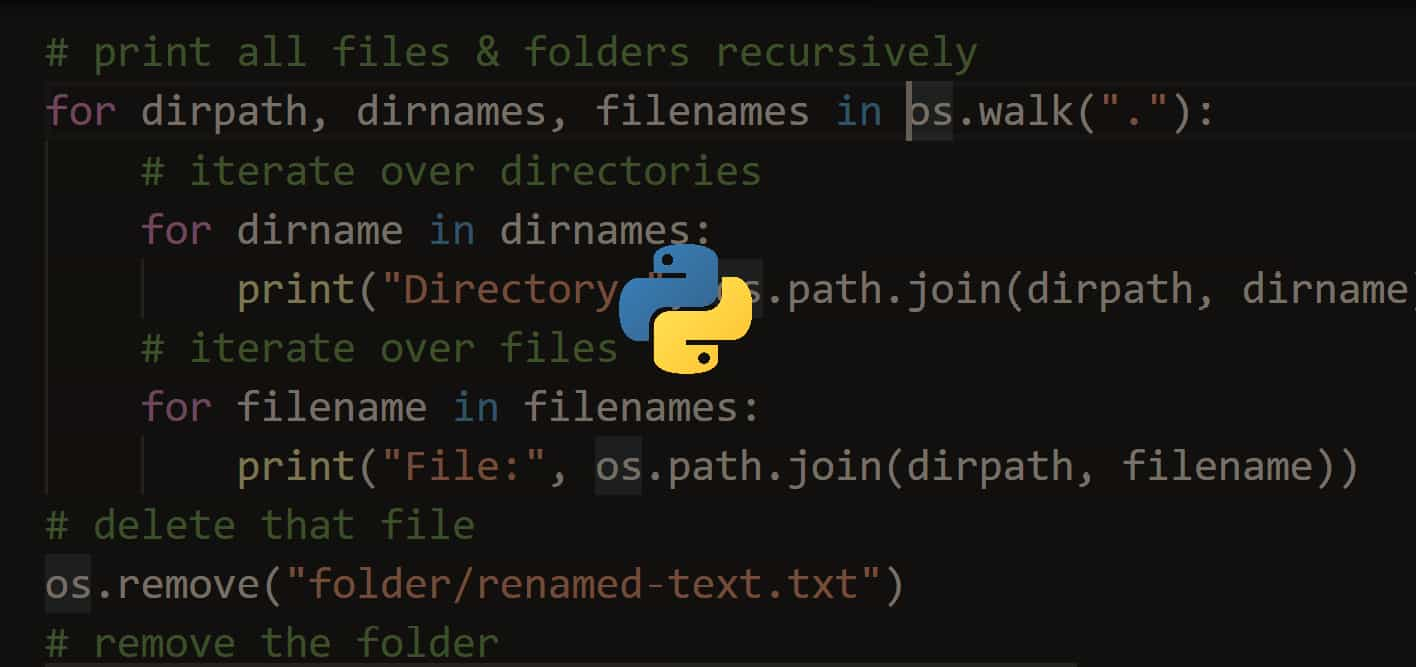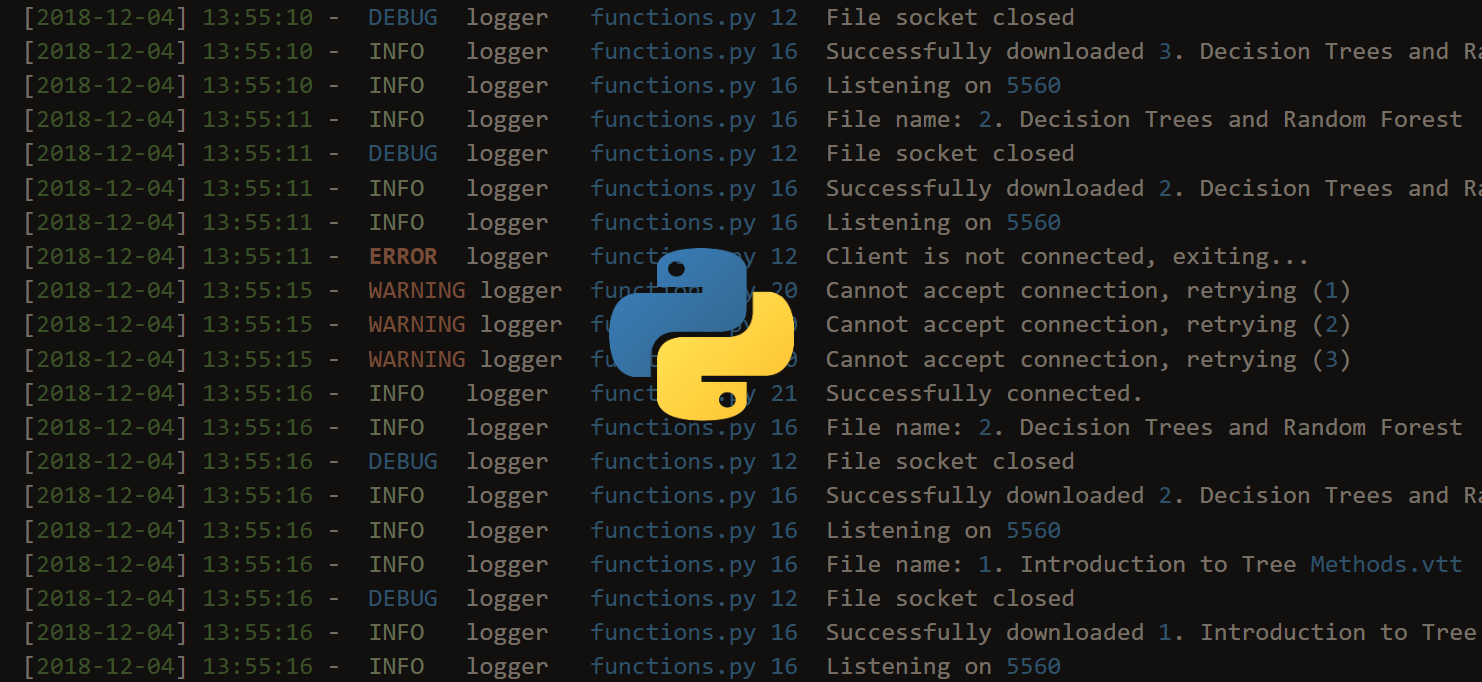Juggling between coding languages? Let our Code Converter help. Your one-stop solution for language conversion. Start now!
Table of Contents
- Network Monitoring
- Simplifying Network Automation
- Short Learning Curve
- Cost-Effective Solution
- Easy Network Maintenance
- Enhanced Security
- Rapid Prototyping
- Automated Network Troubleshooting
- Endnote
Due to its unique features, Python has become a popular programming language, making waves in different industries, including network engineering and automation. Python provides simplicity and flexibility that network engineers can leverage to automate complex tasks and processes. It provides a powerful toolset for network engineers, enabling them to increase their efficiency and automate repetitive tasks. This article will unveil the power of Python in network engineering and automation:
Network Monitoring
Python offers a range of modules that allow network engineers to monitor network traffic and bandwidth usage. Python's built-in modules, such as socket, sys, os, and platform, provide a range of functions and operating system-based utilities that can help with network monitoring and management.
In addition, several third-party Python libraries are available, such as Scapy, a powerful packet manipulation framework for network engineers. Using Python, network administrators and engineers can collect real-time network traffic data, analyze network performance, and troubleshoot network issues promptly. Python scripts can also monitor network device configurations and alert network engineers when changes impact network performance.
Simplifying Network Automation
Python simplifies network automation by making it easy to perform repetitive tasks. Automation tasks such as network backup and device configuration changes can be streamlined with Python. This powerful language can also automate network infrastructure deployment, enhancing speed and accuracy.
Python also makes it easy to integrate with devices using APIs. Many network devices, such as switches, routers, and firewalls, offer APIs, allowing automation to perform tasks that typically require manual configuration and updates. Automating these tasks reduces the time required and provides better control and consistency across the network's devices.
Short Learning Curve
You don't need to spend months learning Python. Even those without programming experience can learn and start using it in just a few days because of its straightforward syntax. It has advanced libraries and modules that enable advanced users to write complex scripts easily. Tutorials and online resources are readily available to help beginners get started with Python scripting. Joining bootcamps for software engineering can also be a great way to learn the language quickly.
Cost-Effective Solution
Organizations do not need to invest in expensive networking software licenses, thus reducing operational costs. Furthermore, Python allows network engineers to develop custom solutions quickly and efficiently without purchasing new hardware or software. They can also leverage existing scripts written in Python from online repositories such as GitHub for their own tasks. As a result, they can reduce development time and resources associated with manual operations.
Easy Network Maintenance
It can be challenging to manage network maintenance, especially for large organizations. With Python, however, network maintenance becomes easy. It automates network maintenance tasks, such as device configurations, firmware updates, and other routine maintenance tasks.
Python scripts can also schedule network device reboots, backups, and other network management operations. Python's integration of APIs with network management devices lets network engineers manage network devices with code and scripting. This automation reduces human errors while enhancing reliability.
Enhanced Security
Security is a vital issue in network engineering, and poor network security can lead to significant data breaches. Even the slightest vulnerabilities can lead to immense damage in today's world. Python offers libraries and frameworks, such as Paramiko, a Python implementation of SSH. This library enables network administrators to establish secure connections to network devices and enable secure communication with them.
Hashlib and cryptography can also encrypt and decrypt sensitive data. Additionally, Python can create custom firewall rules and network security scripts that ensure only authorized traffic enters the network. Network security testing identifies vulnerabilities in the network, helping cybersecurity teams improve the network's security and mitigate hacking attempts.
Rapid Prototyping
Rapid prototyping is crucial in network engineering, allowing engineers to test a new network design without disrupting the existing network. Python enables network engineers to build and test network designs quickly, reducing the time needed for a network design project.
Python's ability to integrate with network tools and protocols means network engineers can test network designs in a simulated environment, allowing them to tweak the design before deploying the network. The ability to prototype and test automation scripts rapidly changes the network engineer's approach to problem-solving by allowing them to deploy solutions quickly.
Automated Network Troubleshooting
Network automation has made troubleshooting easier and more efficient. Python's programmable network infrastructure allows automation tools to detect and solve network issues automatically. They can spot underperforming links, misconfiguration issues, and security breaches. With Python, you can monitor your network for unexpected traffic and alert you to potential security threats in real-time. Enhanced troubleshooting allows network teams to focus on other essential tasks without being bogged down by tedious and repetitive work.
Endnote
Python has changed the landscape of network engineering and automation. It provides an excellent solution for automating repetitive network tasks, increasing network performance, and making network engineering more efficient. The robust libraries provided by Python make network automation and visualization simple. The open-source nature of Python provides a reliable support network, enabling network engineers to access libraries and expertise from the community. As a result, network engineers gain a powerful tool to automate their way and take their network engineering skills to greater levels.
Found the article interesting? You'll love our Python Code Generator! Give AI a chance to do the heavy lifting for you. Check it out!





Got a coding query or need some guidance before you comment? Check out this Python Code Assistant for expert advice and handy tips. It's like having a coding tutor right in your fingertips!